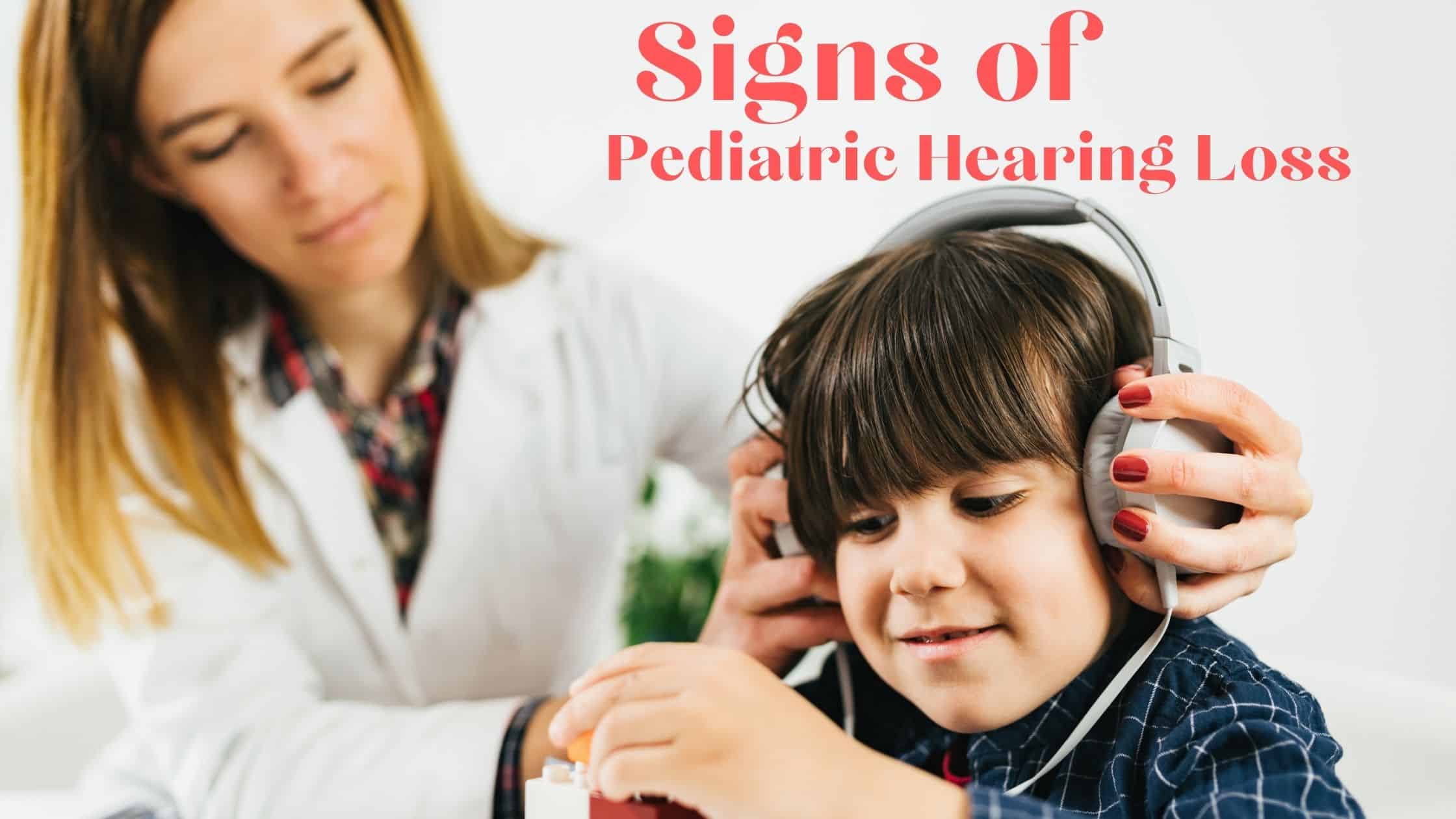
While hearing loss can occur at any age, the fact is it can manifest at any age. This is why it is particularly important to be aware of the signs of pediatric hearing loss. Screening for pediatric hearing loss is critical during a child’s early years. Even mild hearing loss can adversely affect development and learning patterns of babies and children when it goes undetected or untreated.
As a child develops, the indicators of hearing loss change. Most newborn infants are screened for hearing loss in their first days of life, and hearing tests should be performed regularly during medical check-ups and at schools. In this unusual time where regular school and medical services may be disrupted, it is important to be extra mindful of noticing if your child may be displaying indications of hearing loss. Let’s take a look at what to look for:
Newborns (0-4 Months Old)
Diagnosing hearing loss in infants is done by monitoring their responsiveness to sound. Usually this is first done within days of birth. An indication of hearing loss is then assessed further to determine the degree of hearing loss and mitigate its impact on the development of the child.
Hearing loss in newborns is most noticeable when the baby does not wake or startle when an unexpected sound occurs. Hearing loss may also be indicated if the newborn fails to recognize or be calmed by familiar voices and soothing tones.
Infants (4-9 Months Old)
After a few months, the signs of hearing loss in infants begin to include sound recognition and experiments with trying to speak. An infant should recognize and turn towards voices and sounds, such as squeaks from a toy. Babies with normal hearing will smile at the sound of familiar voices – a failure to do so may indicate hearing issues.
Finally, infants at this stage will begin to make babbling sounds – mimicking the sounds of speech and experimenting with vocalization. Often as a precursor to learning spoken language, babies become quite “chatty”. Infants with hearing loss are often not nearly as vocal, sometimes being largely silent and not creating sounds that seem to approximate speech.
Infants (9-15 Months Old)
Around 9 months and into their first year, infants are developing how they hear and beginning to recognize not just what you sound like, but the simple meanings of some of what is said. Babies will also begin to recognize their name. Infants with hearing loss may not meet these milestones, failing to connect speech to meaning and unable to recognize their name and when they are being spoken to.
Babbling sound-making continues, as infants learn to replicate language. They will also learn to use their voice to attract your attention. However, infants with hearing loss will often not make use of their voice to garner attention and be less vocal than their peers.
Babies (15 Months -2 Years Old)
As infants grow into being toddlers, they learn spoken language quickly, starting to repeat and use simple words and recognize objects. Babies with healthy hearing can recognize familiar objects by their name, such as body parts and colors. They will also be interested and engaged with listening to songs or stories.
When babies don’t show an interest in sound or have trouble associating words with objects it can indicate that they are not hearing a complete palette of sounds and noises. Disinterest in noise babies most often means that they have difficulty detecting that sound is there. Hearing loss should be recognized as early as possible to help the child overcome learning and communication challenges as they grow.
Children (2 Years and Older)
Once children are toddlers and even as they enter school, new signs may emerge to indicate hearing loss. Children with hearing loss may speak differently than other children and will be slow to pick up new words and phrases. They may suffer in their schoolwork, especially in any activity with verbal instruction.
The signs of hearing loss that we look for in adults may begin to be present – children may turn up the volume on televisions, stereos or personal devices. They may also struggle to keep up with conversations, adapt to noisy settings and need speech repeated.
It’s important for hearing loss to be detected and treated early, nowhere moreso than with babies and children. If you’ve noticed an issue with your child’s hearing it’s time to get in touch with us today.